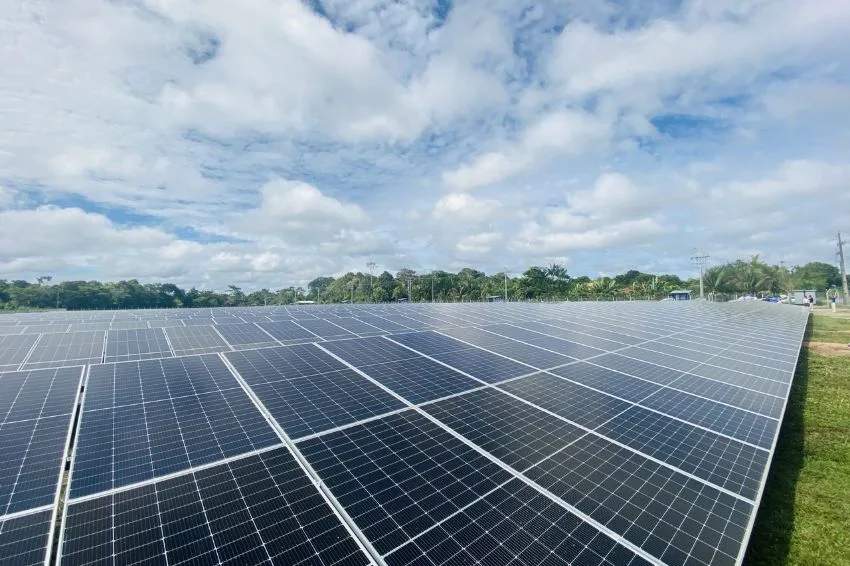Article written in collaboration with Andréa Caliento and Mariana Rodrigues, partners in the real estate area of the Lefosse office
According to the National Energy Balance, the installed capacity of MMGD (Micro and Minigeneration of Distributed Energy) went from 18,120 MW in December 2022 to 25,818 MW at the end of 2023. In this same increase, the self-production of energy increased by about 42% in recent years.
Faced with this scenario of increased demand for electricity generation projects from renewable sources, some questions arise – we highlight in this article the question that has been most recurrent in the structuring of these projects, namely: What is the appropriate legal instrument to guarantee ownership of the property where the projects will be installed?
To answer this question, we first need to note that the conclusion of a contract that establishes direct ownership of the property where the facilities are located is a regulatory obligation.
When it comes to MMGD projects, it is observed that the presentation of a contract is an essential condition for the issuance of Connection Budgets (Art. 67, IX of REN nº 1,000/2021).
And, in the case of Self-production projects (mainly in the leasing and consortium modalities), the declaration of ownership, direct possession or usufruct of the areas necessary for the implementation of the plant, is essential for the issuance of the grant (Annex III of REN nº 1,071/2023).
In this context, there are some possessory instruments that are commonly used to regulate the occupation of properties involved in these projects, namely: rural leasing, real surface rights, assignments of use and leases governed by Law No. 10,406 (“Civil Code”) or by Law No. 8,245 (“Leasing Law”).
As will be seen below, each of these modalities has its peculiarities and may bring different benefits or risks, which must be evaluated and considered in each contract, depending on the specificities of the property and the contractor:
Rural Lease
Lease contracts are widely used within the scope of energy projects, because the respective properties involved are usually rural.
However, the legislation applicable to this contractual modality provides that leases must only regulate agricultural, livestock, agro-industrial, extractive or mixed exploration activities.
Consequently, there are discussions as to whether these are the appropriate instruments for the projects mentioned here and their execution may result in questions, especially with regard to the applicability of the legal provisions provided for in the legislation that regulates the topic.
Real Surface Rights
The institute brings greater legal security because it is a real right that can be registered in registration and, therefore, can be enforced against the parties and any third parties, and can even be subject to guarantees provided by the superficiary.
However, its constitution involves costs with drawing up and registering a public deed, as well as requiring regularity (e.g. georeferencing) of the surface area, which, in some cases, may make its use unfeasible.
Rentals
Leases are less expensive than surface rights and can guarantee the lessee the right of preference in acquiring the property, as well as the right to remain in the asset in the event of disposal, depending on the applicable legislation and as long as they are registered/registered in the asset registrations.
However, there is controversy over the application of the Civil Code or the Rental Law in these cases, due to the rural nature of the properties and the non-agricultural activities carried out (energy production).
Bill No. 4,283/2021, still in progress, proposes that leases in energy projects be governed by the Civil Code, which could end existing controversies and provide more legal certainty to the parties, if the project is approved.
Assignment of Use
The assignment of use is also less onerous than the surface right, but it does not always provide the same rights and security as the above institutions, as it is not a real right, but rather a personal right, binding only the contracting parties, as well as because there is no legal provision ensuring the right of preference or validity in these cases.
However, some Notary Offices allow the registration of these contracts on property registrations, for the purpose of advertising the instrument to third parties.
Thus, although the surface right provides greater legal security, the choice of the ideal instrument requires an individualized analysis, aligned with the interests of the company, the particularities of each case and applicable local legislation, and for this purpose, the assistance of a lawyer specialized in the area, in addition to consultation with the General Internal Affairs Regulations and the local Property Registry Office.
Furthermore, it is essential to evaluate the market practices of financial institutions, if there is an interest in financing projects, as some banks have restrictive policies regarding the contractual instruments accepted.
Finally, it is important to consider the restrictions on the acquisition and leasing of rural properties by foreign investors and companies similar to foreigners, which also requires specialized legal guidance, especially due to possible comparisons of other contractual modalities to instruments subject to such restrictions.

















2 Responses
Hello, my name is Elson, I am a Law student and I am preparing my TCC on law 14,300, which has awakened my passion for the subject. I was interested in learning more about it and I realized that Dr. Pedro Dante is a reference in this field, which gave me hope in working with Law in this field. Do you have any tips for someone new to Law? Is it a good acting aria?
Yes. I understand that the energy sector is an excellent option for those looking for a specialized segment, which is a trend for the legal sector. As there is no energy subject in colleges, my recommendation would be to look for internships in the area (companies or offices specializing in energy). The segment is growing rapidly and will certainly demand specialized professionals in the legal field in the coming years.
Here is my email: [email protected]
Hugs Pedro